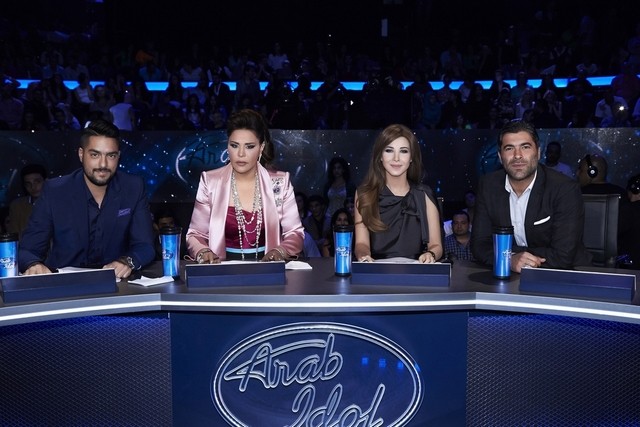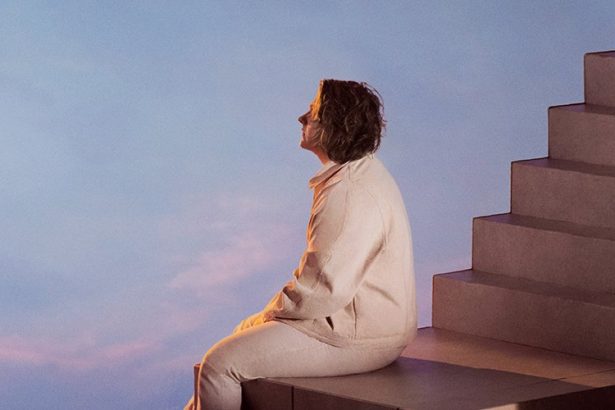A shorter version of this piece appeared in The National, April 2016
She’s a 22 year-old call centre operative who has suffered domestic abuse, spent time in a women’s refuge and has a one year-old child. Reality shows by their very nature revel in an emotional back story, but there has been something especially heart-warming about La’Porsha Renae’s rise to American Idol favourite. Heart-warming, and apt. For if she does win in this week’s finale, this incredible singer will be the last ever American Idol and, just maybe, a reminder of the show’s original raison d’etre: to celebrate undiscovered talent.
Will Renae become a star? It’s not a cop out to answer, “who knows?”. The list of American Idol winners who have actually gone on to enjoy runaway success in the show’s 15 year run is relatively thin – Kelly Clarkson and Carrie Underwood, essentially – and the general consensus is that the show once nicknamed the “Death Star” because of its all conquering hold over the schedules is now past its sell-by date.
Simply put, it’s gone on for too long. Of the 56 spin off Idols broadcast at the peak of the show’s popularity, only 11 now exist, anxiously tweaking their formats to maintain audience interest. Arab Idol had a year off last year.
But then, there were actually only two series of the original Pop Idol in the UK. Created in 2001 by Simon Fuller, the man behind the Spice Girls, the idea was simple – and in fact lifted rather closely from a New Zealand reality talent show called Popstars, which would go on to enjoy its own success as a global franchise. But there was a critical difference – Pop Idol was about the search for one solo star rather than a group, and it involved a public vote alongside the views of the judging panel.
Its first winner was the delightfully polite Will Young – who has gone on to enjoy a significant music career. But it was also the chemistry between and antics of the judges (and one in particular by the name of Simon Cowell) which would make the show such a success – and become its immediate downfall. Cowell, famously, persuaded ITV to commission his own talent show, The X Factor, as a replacement in 2004. That show still runs in the UK to this day – and also has countless franchises around the world.
Cowell could court ITV because by 2002 he was also a star of American Idol, alongside Paula Abdul and the relatively unknown Randy Jackson. As in the UK, American audiences lapped up the drama at the judges table and the chance to vote to save their favourite singers. The first winner was Kelly Clarkson, her debut single becoming the best-selling track of 2002 in the US. American Idol’s place in the national conversation was confirmed.
And the power of the Idol series to prompt watercooler moments such as Clarkson’s version of Aretha Franklin’s Respect was replicated all over the world. A year later, Ryan Malcolm was voted the first Canadian Idol in a show hosted by the son of a former Canadian Prime Minister, Ben Mulroney – although Malcolm’s career trajectory mirrored many a male winner: immediate success followed by relative obscurity. The series became the most popular television show in Canada – and famously passed over Carly Rae Jepsen in 2007 for Brian Melo.
The fact that most people would be within their rights to say ‘Brian Who?’, does tend to confirm a suspicion that the Idol franchise has always been more about the journey than the destination. And perhaps the lack of long-term success for most of the winners has ended up removing some of the shine. By 2008, Canadian Idol was over, crippled by a halving of its viewing figures, the economic downturn and the staggering success of American Idol across the border.
Meanwhile, Australian Idol had a very similar experience, beginning in 2003 and lasting just one more season than Canada. Only the most assiduous of pop fans will have heard of any of its winners, but in fairness its first, Guy Sebastian, and its last (Stan Walker), have enjoyed fruitful careers in the Australian music industry. Once again, the cancellation in 2009 came amid nosediving audience figures.
It’s telling, however, that Walker and Sebastian both ended up as judges on The X Factor, which in many countries came to compete with the Idol franchise. Add The Voice into the mix – a Dutch programme which now has as many international versions as both Idol and The X Factor – and it didn’t take a television expert to surmise that the world was suffering from talent show fatigue. When Indian Idol failed to make huge stars of its winners despite seeming to boast the ideal conditions for success, a junior version took its place from 2013.
Nevertheless, France still has its Nouvelle Star and Germany enjoys a bit of Deutschland Sucht Den Superstar of a Saturday, which made a fleeting star of Mark Medlock – a trash collector who went on to sell 3m records… and then got himself arrested.
Then, of course, there’s Arab Idol, which succeeded Super Star in 2011 and made a proper star of former refugee Mohammed Assaf in 2013. There haven’t been too many instances of a talent show winner getting his own biopic while still in his twenties, but The Idol is proof that the original premise – regular people getting a shot at their dreams – still holds water and the ability to enthrall audiences. Assaf – who plays in Dubai on Thursday – is one of the few winners who can genuinely call himself an idol.
And yet, for all the show’s incredible success (120m people saw Assaf crowned the winner) there was no Arab Idol last year – although The National has reported that a fourth season is scheduled for later this year. It may well be, as American Idol comes to a close, that Arab Idol will become the biggest show in the franchise. In which case, here at least, the thirst for the drama of superstardom shows no signs of abating.


